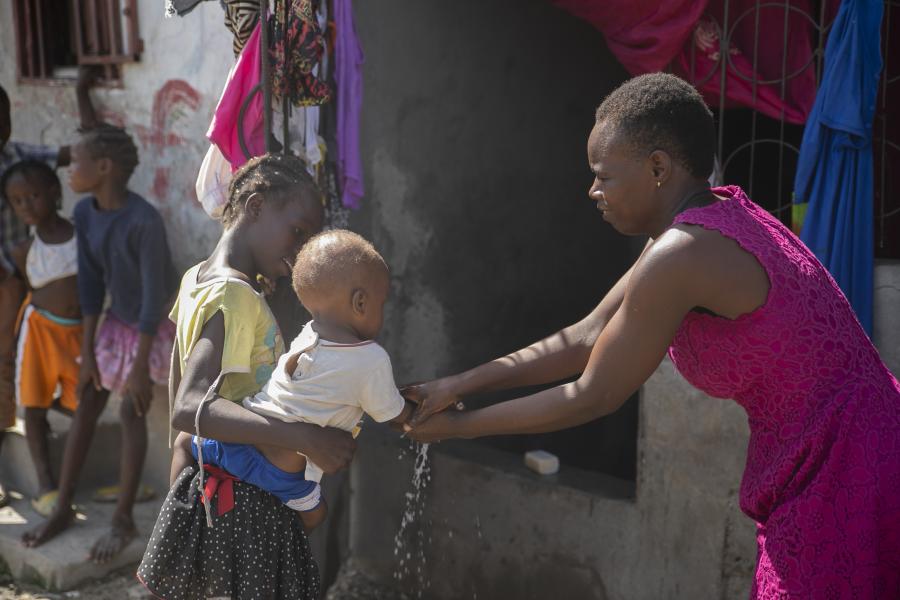Haiti: UNICEF needs US$210 million to bring humanitarian aid to 2.7 million people next year
8 dsanm 2022
Haitian children are plagued with cholera, malnutrition and gang-related violence

PORT-AU-PRINCE / PANAMA CITY, 7 December 2022 - UNICEF is requesting US$210.3 million to meet the needs of 2.7 million people in Haiti, including 1.6 million children in 2023. The upsurge in violence and social unrest, the resurgence of cholera and the residual needs of the most vulnerable earthquake-affected population have led to an increase in humanitarian needs and funding requirements compared with 2022.
“When a mother sees her malnourished child suffer from cholera, have diarrhoea, vomit, further lose weight and is on the brink of dying, and she cannot take them to the hospital because of insecurity, it’s sad. In Haiti, one in two children has not resumed going to school again, and risk falling in the trap of gangs, and due to violence, health workers or teachers cannot freely report to work, further obstructing women and children’s access to health, nutrition, education, and sanitation services,” said Bruno Maes, UNICEF Representative in Haiti.
After more than 3 years without any cases of cholera reported, Haiti declared on 2 October the resurgence of the disease. As of 5 December, the country passed the milestone of first 1,000 confirmed cholera cases. The Ministry of health reported more than 1,100 confirmed cases with over 13,400 suspected cases and 281 deaths. Nearly 50 per cent of confirmed cases are among children under 15 years old.
The cholera outbreak is layered over gang-related violence and major social unrest that erupted across the country. At the same time, severe fuel shortages restricted utilities and the delivery of basic services, including water and health care. In some areas, insecurity prevents patients to access medical facilities and health personnel to report to work, heavily impacting the response to the cholera outbreak, including data collection and transportation of test samples and results.
Violent protests that had been building since mid-2021 due to gang violence and the killing of the President have directly affected access to health services for at least 1.5 million people, while more than 4 million children continue experiencing malnutrition and poor access to basic services. At least 96,000 people are internally displaced in Haiti due to gang violence and civil unrest, with unaccompanied children exposed to abuse, exploitation and violence.
A nutrition assessment in Cité Soleil, an impoverished neighbourhood in the Port-au-Prince metropolitan area, revealed that one in five children under the age of five suffers from acute malnutrition, while 4.7 million people in Haiti are facing acute hunger.
Tremendous efforts are made by the Ministry of National Education and Vocational Training (MENFP), but 47 per cent of schools have not yet opened. In 2022, three in five schools assessed by UNICEF and MENFP have been attacked or pillaged, leaving half a million children aged 5-19 years at risk of losing learning opportunities.
In 2023, UNICEF will provide life-saving goods and services to children and vulnerable populations in the context of insecurity, health and social and economic crises in Haiti, provided that sufficient and timely funding of US$210.3 million requested is received.
About UNICEF
UNICEF works in some of the world’s toughest places, to reach the world’s most disadvantaged children. Across 190 countries and territories, we work for every child, everywhere, to build a better world for everyone.
For more information about UNICEF and its work for children, visit https://www.unicef.org/Haiti.
For more information, please contact:
Ndiaga Seck, UNICEF Haiti, +509 37 44 61 99, nseck@unicef.org
Laurent Duvillier, UNICEF Regional Office for Latin America and the Caribbean, + 507 6169 9886, lduvillier@unicef.org








